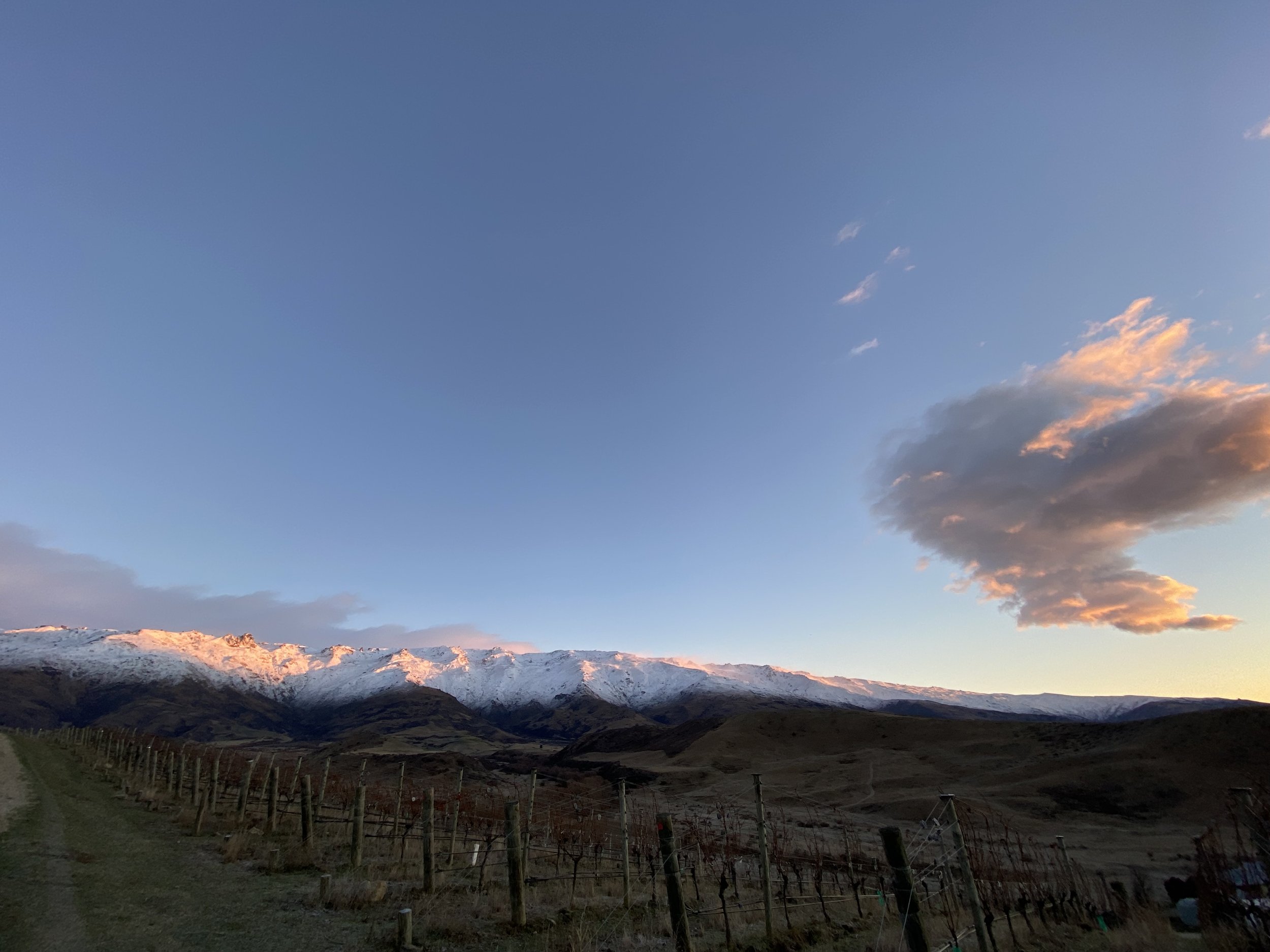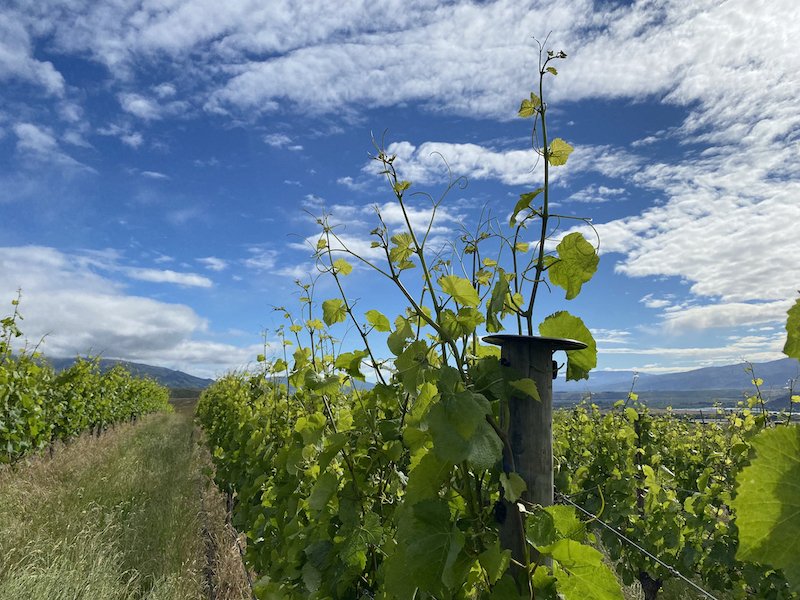

Kahiwi
Nestled beneath the Pisa Range in Central Otago, Kahiwi draws its name and inspiration from the very land it calls home. In Te Reo Māori, Kahiwi means "the ridge of a hill," our vineyard's unique landform. But Kahiwi also holds a deeper meaning - "the heart or trunk of a tree" - connecting us to the earth and flora of our region.
Our Roots in the Land
While Central Otago may appear dry and barren today, it once flourished with Kōwhai forests. Mānuka, Kānuka, Harakeke flax, Tī Kōuka (Cabbage Trees), and Horoeka (Lancewood) all find a home here. The twisted Mikimiki shrub, growing wild on the Pisa Range, provides a linguistic bridge to our name - both "Miki" and "Kahiwi" can refer to the ridge of a hill.
We nurture native plants alongside our vines. This connection to the land's past informs our present and future. We value these trees not just for their beauty, but for their essential role in our ecosystem. We plant them for diversity, for shelter and for the future.
Winegrowing
At Kahiwi, we believe in working in harmony with the land, rather than seeking dominion over it. Our approach is guided by three principles:
Biomimicry: We look to nature's own systems for inspiration and solutions.
Wu-wei: We embrace the Taoist concept of "non-doing" or "effortless action," intervening only when necessary.
Thoughtful Inquiry: We employ critical thinking and first principles to question established practices, fostering innovation and continuous improvement.
This philosophy translates into concrete practices:
We prioritize soil health above all, understanding that vibrant, living soil is the foundation of exceptional wine.
Heavy machinery use is minimized to prevent soil compaction.
Pesticides and synthetic fertilizers have no place in our vineyard.
We employ diverse cover crops, compost, and mulch to nourish the soil naturally.
Grazing animals play their part in our ecosystem, invigorating the land.
Our vines are tended by hand - from pruning to harvest - allowing for intimate care and observation.
Our approach follows the 70/20/10 principle:
70% conservative, knowledge-based practices
20% informed experimentation
10% left-field experimentation
This balance allows us to honor traditional wisdom while continuously seeking improvement and innovation in our winegrowing methods.
Central Otago Pinot Noir with a difference: restrained yet textured, structural yet nuanced. The result of working with nature - A complexity and character that speaks of place and process.
Our wines are an expression of our land, our practices, and our commitment to working in concert with nature. Each bottle tells a story of patient observation, thoughtful intervention, and a deep respect for the unique character of our terroir. They are the culmination of our philosophy.




